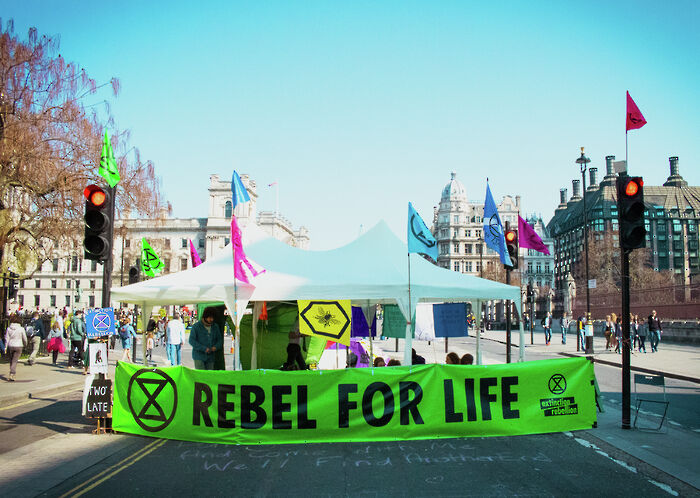I am not a class traitor, but I do feel class guilt
Daniel Davidson argues that the concept of class traitor is outdated, but a lingering feeling of class guilt affects the experience of working class students in Cambridge

I am Daniel. I am a gay man from a former mining town in West Lancashire. I went to various state schools on free-school meals, had the opportunity to go to a grammar school but declined due to family issues – others may have declined due to social pressure. My parents have been in and out of employment, my father being relatively successful despite falling through the British education system at 15, and my mother struggling with the burden of raising two young boys while inconsistently holding various administrative jobs. They split up when I was a child. If a “lower/working” class exists, I believe I fit the bill.
In 2017, I matriculated at Cambridge, a university marketed as a bastion of upwards social mobility. I was the beneficiary of what was termed an “open offer”, the only one in my year and, I believe, the first to obtain one in the Economics Tripos for at least the past five years. This open offer took into consideration my low-income background, a progressive step for a University that prides itself on its traditional interview-based application system. I believe this was a preliminary move towards the new 100 conditional places offered to low-income students. But why am I the one to receive this treatment, and not those before me?
I find the term ‘class traitor’ difficult to assign to myself
Impostor syndrome is experienced for a multitude of reasons. Indeed, self-identity is a complicated issue without the added bizarreness of Cambridge. The biggest change was how I perceived my friends’ and family’s image of who I was. The way I was seen, talked to or talked about had changed: the overly proud mother who defines her success by my existence; the younger brother implicitly pressured in his life by the benchmark I have set; or my friends who remained in our hometown believing I had abandoned my home.
I spend barely a quarter of the year at home now. Does this make me a class traitor?
From the off-hand jokes from friends about me spending more time in expensive coffee shops than in libraries, to terms like ‘posh boy’ that have followed me all the way through high school, there is a view that my choice to attend Cambridge is an abandonment of my roots. Even up to the subtleties of my lack of regional accent, lost way before I ever arrived here, despite being the grandson of a Huyton gal.
As I approach my final year, I’m beginning to wonder whether I have abandoned other working class people. Did spending £160 on a May Ball ticket make me middle class? What working class kid puts on a gown and prances around in black tie? In a country where families make the impossible decisions of whether to pay rent or feed their children every month, £160 would be over two weeks food for my family. Does writing an opinion column and moaning about class make me pretentious?
I find the term ‘class traitor’ difficult to assign to myself. I didn’t intend to abandon my roots. Instead, I feel class guilt.
It’s guilt that I am benefiting from opportunities my own family couldn’t conceive of – a guilt that the money I’m given via the bursary, scholarships and accommodation rebates is all reliant on my low-income background, while my friends elsewhere must balance loans and even my slightly more affluent friends in Cambridge feel the squeeze.
I feel class guilt when I walk home to my gated community after a corporate networking event, passing multiple people sleeping on the streets. I feel class guilt as a Cambridge student, being told I’m going to ‘save the world’, but doing little to address the inequality on my doorstep. I feel class guilt in the job applications I fill out, where the starting wage is more than the combined wages of my family. This guilt comes to fruition in the access work and consistent promotion of Cambridge back home.
The resources provided to me and the opportunities taken by me would not filter back into my community if I didn’t take them. It’s better to grab each and every opportunity than allow an unjust system to self-perpetuate. There is no shame in social mobility, and it is after all a sign of a dynamic, open and meritocratic society. There is no obligation to pigeon-hole ourselves into certain societal roles to meet ever-changing expectations. Personal success can only be judged by you and you alone. But that doesn’t stop this guilt.
However, I have nothing to prove. I have nothing to apologise for. With my place in Cambridge, I intend to do and experience amazing things – but I refuse to forget my roots.
 Comment / Plastic pubs: the problem with Cambridge alehouses 5 January 2026
Comment / Plastic pubs: the problem with Cambridge alehouses 5 January 2026 News / New movement ‘Cambridge is Chopped’ launched to fight against hate crime7 January 2026
News / New movement ‘Cambridge is Chopped’ launched to fight against hate crime7 January 2026 News / Uni-linked firms rank among Cambridgeshire’s largest7 January 2026
News / Uni-linked firms rank among Cambridgeshire’s largest7 January 2026 News / SU stops offering student discounts8 January 2026
News / SU stops offering student discounts8 January 2026 News / Cambridge businesses concerned infrastructure delays will hurt growth5 January 2026
News / Cambridge businesses concerned infrastructure delays will hurt growth5 January 2026









